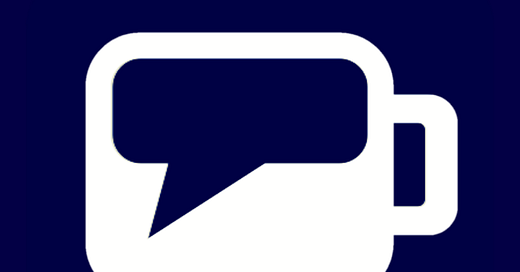
A Guide to Picking Your Coach
Narrowing down choices and making the most of your discovery sessions
1:1 coaching is most effective when you are comfortable and confident speaking with your coach. We often feel most comfortable and confident opening up to those who we see as having a shared context or experience, and where there is clear alignment and understanding around the goals of the conversation. Therefore the selection process is very important to ensure you get the most out of your coaching experience. The coach selection process typically unfolds in two stages:
Identify suitable choices: Here you must narrow down your options to a number of final coaches to select from. With CoffeeChat, you are provided with a pool of recommended coaches for whom you can browse their profiles.
Conduct discovery sessions: Here you must confirm which option is the best fit. With CoffeeChat, you are encouraged to schedule a 1:1 discovery call, also called a “chemistry session”, with between 2-3 coaches, before committing to more forward with one of the coaches for the full coaching engagement.
Here are 4 important questions that you should keep in mind throughout these two selection stages:
Is there a good chemistry? This is highly subjective, yet critically important. If you aren’t ready to open up and honestly reflect on key areas of stress and vulnerability, it will be difficult to make meaningful progress during coaching sessions. You want to find a coach that you “click” with, which is something that can be hard to describe, but you know it when you feel it. Do your part to give the coach a chance of genuinely connecting with you by making sure to show up for the discovery session with a positive mindset and not necessarily treating it like a formal interview. Remember, the coach also wants to check if you are going to be a good fit for them as well.
Does the coach understand your context? While coaching is designed to not require that the coach have the full context of the participant (the coachee), it can certainly help if the coach has a decent baseline understanding of your day-to-day professional experience, so you feel less need to share extra details to catch them on your reality. Therefore during both the narrowing down and the discovery sessions, try to look for whether the coach has had experience either in similar roles, similar workplace settings, your city or country, or the same industry.
Is their coaching style relevant for your goals? While there are similarities and best practices in how most coaches organize the flow of a coaching engagement over 6-12 sessions, each coach is unique in how they work with each of their clients. To help you get a clearer picture of what its actually like conducting coaching sessions with them, there are two questions you should ask during your discovery session:
1) Ask them to share an example of a recent client story, i.e. the type of challenge or growth area the client was working on, how the coach supported them, and what the outcome was. The coach should be able to share an anonymized version to illustrate how their coaching methodology is applied. The example will ideally mirror certain elements of what you yourself will experience.
2) Mention one specific area or soft skill that you are working on professionally, and ask how the coach might structure their sessions to focus and improve in that area. The coach should be able to articulate several different coaching approaches you could consider. If what they share doesn’t seem like it will be impactful for you, feel free to challenge them to explain further why they believe it will be. If you don’t have an example of an area you want to work on, ask the coach how you would go about identifying the best area(s) to work on.
Will timelines and scheduling be feasible? Even if there seems to be a great fit, sometimes practicalities get in the way. This should come up in the discovery session if there is a deal-breaker, such as a language barrier (i.e. if your preferred language to reflect in is French, but your coach isn’t comfortable coaching in French), time zone (if it’s impractical to schedule sessions based on both of your locations and daily schedules), duration (perhaps the coach won’t be available for several months in the near future), or format preference (you prefer in-person, but the coach isn’t able to come for in-person sessions).
CoffeeChat enables companies to run digital coaching programs for their teams, through both its network or peer coaches and professional coaches. Our mission is to make coaching more accessible, affordable, and relevant for emerging leaders across emerging markets.







